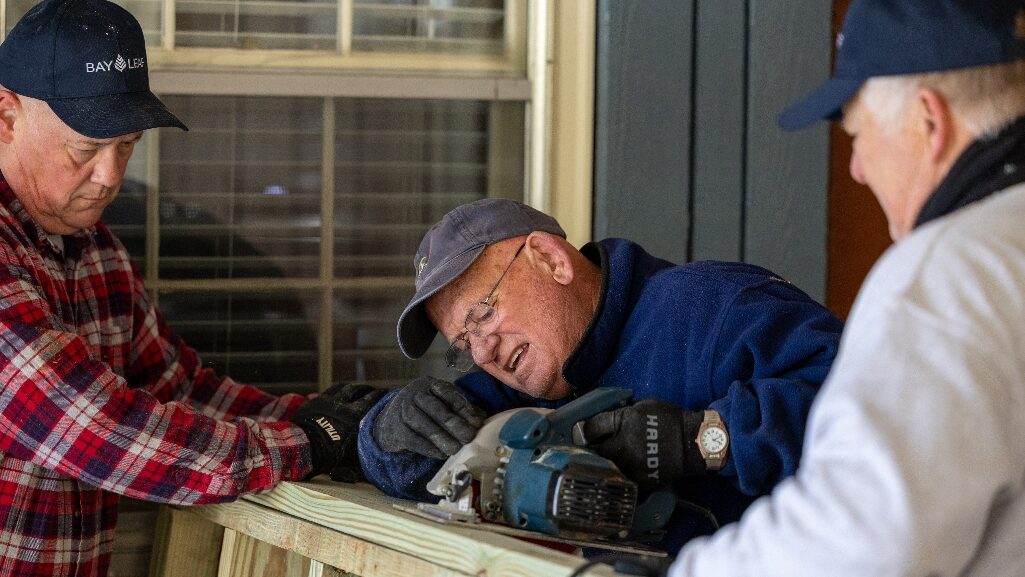It’s no secret that we have trouble slowing down to rest these days.
For those of us who didn’t have jobs where it was essential to being on-site and in-person during the COVID-19 pandemic, it seems like a lifetime ago that we were staying home, moving slow and finding some much-needed rest from the hustle and bustle of life.
This is good, because it’s good to spend time with people, be useful with our time, go to class and work. However, the pace of life is so tremendously different than it was just two years ago that many of us are feeling the effects of an always full schedule.
Here are five points to start with on when thinking about “sabbathing.”
1. Adam and Eve were so connected to God that when God rested, they rested.
In Genesis 2:1-3 we see Adam and Eve communing with God in perfect relationship. It’s interesting to note that God doesn’t give Adam and Eve a command to rest, they just do it. Sabbath wasn’t a command they had to learn how to keep, it was just their way of life because they were in step with God’s presence. What God was doing, they were doing.
We have this capability with Jesus. John 15 lays out the reality that we ought to abide in Him as He abides in us. This type of “in-step-ness” is the type of relationship Adam and Eve had with God in the garden. The question is, how can we be so in step with the presence of God that when he does something, we do it too?
2. You were once slaves to the world, but now you’re free.
In Deuteronomy 5:12-15, Moses is reviewing the 10 commandments with God’s people. Interestingly, the command to Sabbath is given more space than any of the other nine commands. In it, God establishes the need for Sabbath based on one key reality — God’s people were once slaves, and now they aren’t. The Israelites were slaves to a way of life that was ungodly, irreverent and they did not rest in God’s presence. So, they needed to learn. And so do we.
We are no longer slaves to the world’s systems or our sin. We don’t have to do what everyone else does and we shouldn’t.
You don’t have to operate how everyone else operates. Everyone else wastes time and does their work whenever they feel like it. You don’t have to do that. You can be diligent about doing your work in six days so you don’t have to work on the seventh.
3. Jesus is Lord over the Sabbath.
In Matthew 12:1-8 Jesus heals a man on the Sabbath and gets some pushback for it from the Pharisees. Surprised? In that section of Scripture, he tells everyone listening that He is the Lord of the Sabbath. He’s the one who says what Sabbath is, not us.
Here’s what this means for us: we don’t have to figure out how to rest on our own. We can invite God into it. We can pray and ask Him what Sabbath needs to look like in our life. We can ask questions like, “Why is it so hard for me to rest?” and “What lie am I believing that makes me believe I need to work more than you do, God?”
Jesus is Lord over all of this, so surely He can help us do it well.
4. If we’re living disobedient to God we will never be able to rest.
There is so much we could say about Hebrews 4:1-13 but nestled right up in there is this reality that if we are disobedient to God, we will not be able to rest. More specifically, we will not experience the rest He has already given us.
If we are in Christ, we have a soul rest that comes only from God. However, if we are living in active or passive sin (doing what God says not to do, or not doing what God says to do) we will not actually experience the rest he wants us to experience. We will try to rest, but we’ll sit there and have a spirit full of anxiety and something that can only be described as “unrest.”
5. Forever rest is where we’re heading.
The end of the Book is no secret. We’re moving toward a reality that is complete — no more pain, no more toil, no more tears, no more heartbreak, and most of all, no more sin. In other words, we’re headed to an eternity of forever rest in God’s presence.
If that’s the case in our future, and that’s where God is taking us, we can believe and expect that He wants us to experience some of that now. We live in an already, but not yet, world. We already have eternity with God forever, but we’re not yet there. The same is true for soul-level rest.
We already have the capacity to experience rest, but not yet in its fullness. My bet is that God wants to pour out his presence on us in such a way that He gives us exactly the rest that we need.
EDITOR’S NOTE — This story was written by Brandon Moore and originally published by Arkansas Baptist News.








